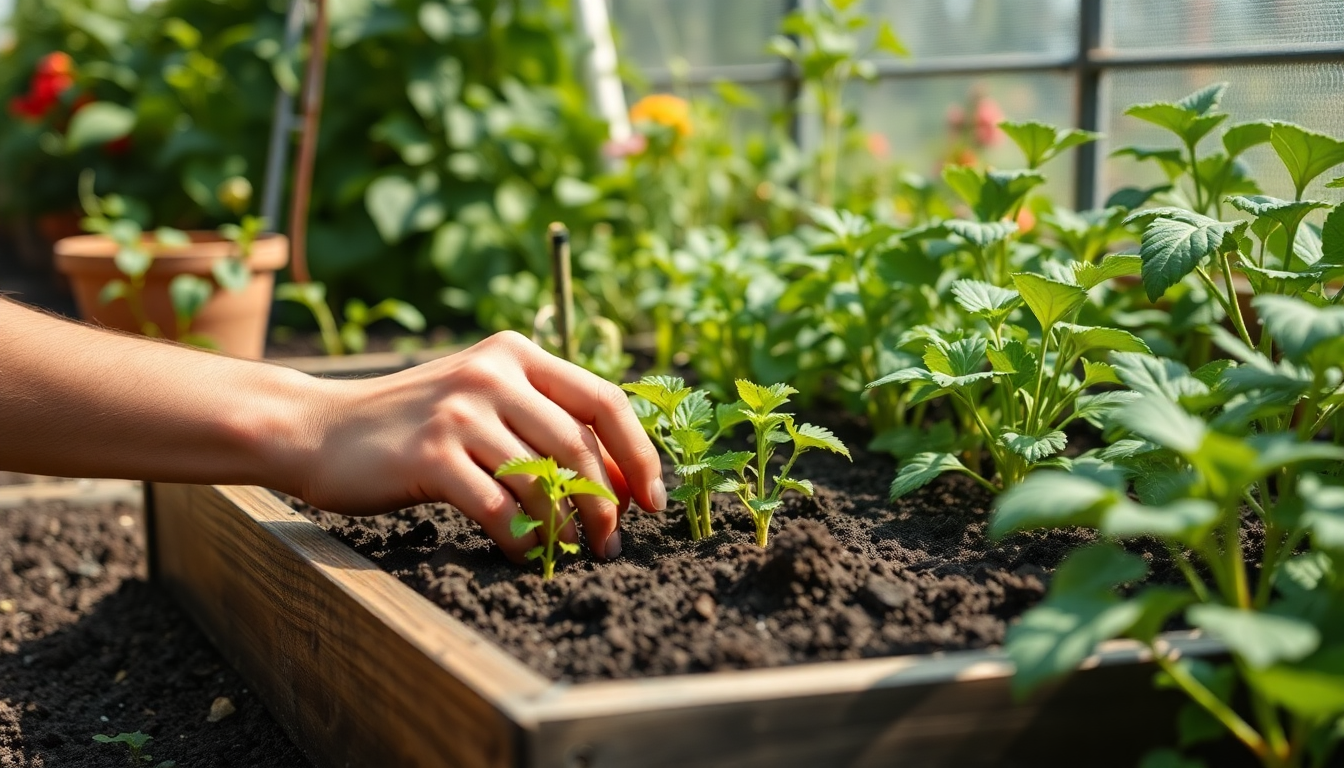Votre panier est vide
Vous possédez un compte ? Connectez-vous pour payer plus vite.
Vous possédez un compte ? Connectez-vous pour payer plus vite.

In the quest for healthier gardens and a cleaner planet, organic fertilizers stand out as a smart and natural choice. Whether you’re a seasoned gardener or just starting, understanding the benefits of organic fertilizers can help you grow thriving plants while caring for the environment. Let’s explore what makes organic plant food a preferred option in eco-friendly gardening.
Organic fertilizers come from natural sources such as plant and animal materials. Unlike synthetic chemical fertilizers, these products supply nutrients in a form that nature processes gently over time. From compost to manure and products like marine phytoplankton, organic fertilizers nourish the soil and plants without adding harmful toxins.
Choosing organic fertilizers means investing in the health of your garden and the environment. They help build healthy soil, support beneficial organisms, and prevent pollution from chemical runoff. For anyone aiming to practice organic gardening and embrace sustainability, organic fertilizers offer an excellent solution.
Organic fertilizers are nutrient-rich substances derived from natural materials. Common types include compost, animal manure, bone meal, and plant-based products like seaweed and marine phytoplankton. Each type delivers essential nutrients like nitrogen, phosphorus, and potassium, plus trace minerals vital for plant growth.
Chemical fertilizers often provide nutrients in concentrated, synthetic forms. While effective for rapid growth, they can harm soil life and lead to nutrient imbalances. Organic fertilizers release nutrients slowly, feeding plants steadily and improving soil structure. This slow-release action reduces the risk of nutrient leaching and supports healthier ecosystems.
One key benefit of organic fertilizers is how they enhance soil health. They increase organic matter, which improves soil texture, water retention, and aeration. A healthy soil environment encourages earthworms and beneficial microbes that help break down organic matter, making nutrients more accessible to plants.
Plants grown with organic plant food often exhibit stronger root development and greater nutrient uptake. Organic fertilizers supply a balanced mix of nutrients, vital minerals, and micronutrients that feed plants naturally. This leads to healthier, more resilient plants and often better yields.
Using organic fertilizers supports a sustainable approach to gardening. They reduce dependency on chemical inputs that can cause water pollution and soil degradation. By improving soil quality and promoting biodiversity, organic fertilizers contribute to a longer-term positive impact on your garden and the environment.
Organic gardening focuses on minimizing chemical use. Incorporating organic fertilizers into your routine helps reduce the need for synthetic chemicals. This keeps your garden free from harmful residues and makes your gardening efforts safer for children, pets, and wildlife.
Healthy soil created by organic fertilizers fosters diverse soil organisms, from bacteria to fungi and insects. This biodiversity boosts nutrient cycling and pest control naturally, reducing the need for pesticides and promoting a balanced ecosystem.
Selecting the right organic fertilizer depends on your garden’s needs. Compost is excellent for enriching soil, manure offers a nutrient boost, and products like marine phytoplankton provide all the essential vitamins and minerals that a plant needs. Understanding your soil and plant requirements can help you pick the best product for optimal results.
Apply organic fertilizers according to plant type and growth stage. Mixing compost into the soil before planting and using manure or marine phytoplankton as top dressings or foliar sprays can be effective. Regular, moderate applications work better than heavy doses at once.
Compost is decomposed organic matter rich in nutrients and beneficial microbes. It improves soil structure and provides a balanced nutrient supply. Making compost at home from kitchen scraps and garden waste is a rewarding way to recycle and enrich your soil.
Animal manure is a classic organic fertilizer full of nitrogen and other nutrients. Properly aged or composted manure is preferred to avoid burning plants and to reduce any odor or pathogens.
MARPHYL Organic Marine Phytoplankton, is an innovative and powerful organic plant food. It contains a wealth of nutrients, amino acids, and growth factors that stimulate plant health and growth naturally. As a sustainable resource from the ocean, it fits perfectly into eco-friendly gardening practices.
MARPHYL provides a natural nutrient boost sourced directly from the ocean’s phytoplankton. Rich in bioavailable vitamins, minerals, and antioxidants, it nurtures your plants holistically.
Harvested responsibly, MARPHYL Marine Phytoplankton supports both the garden and the planet. Its use reduces reliance on synthetic fertilizers and contributes to a greener gardening approach.
Organic fertilizers bring many benefits—from improving soil health and enhancing plant growth to supporting eco-friendly gardening and protecting the environment. Choosing natural options like compost, manure, and innovative products like MARPHYL Marine Phytoplankton can transform your garden into a thriving, sustainable space.
By embracing organic gardening practices and using quality organic plant food, you not only nurture your plants but also contribute to a healthier planet. Give your garden the best with organic fertilizers and consider MARPHYL Marine Phytoplankton for a truly nourishing and eco-friendly gardening experience.